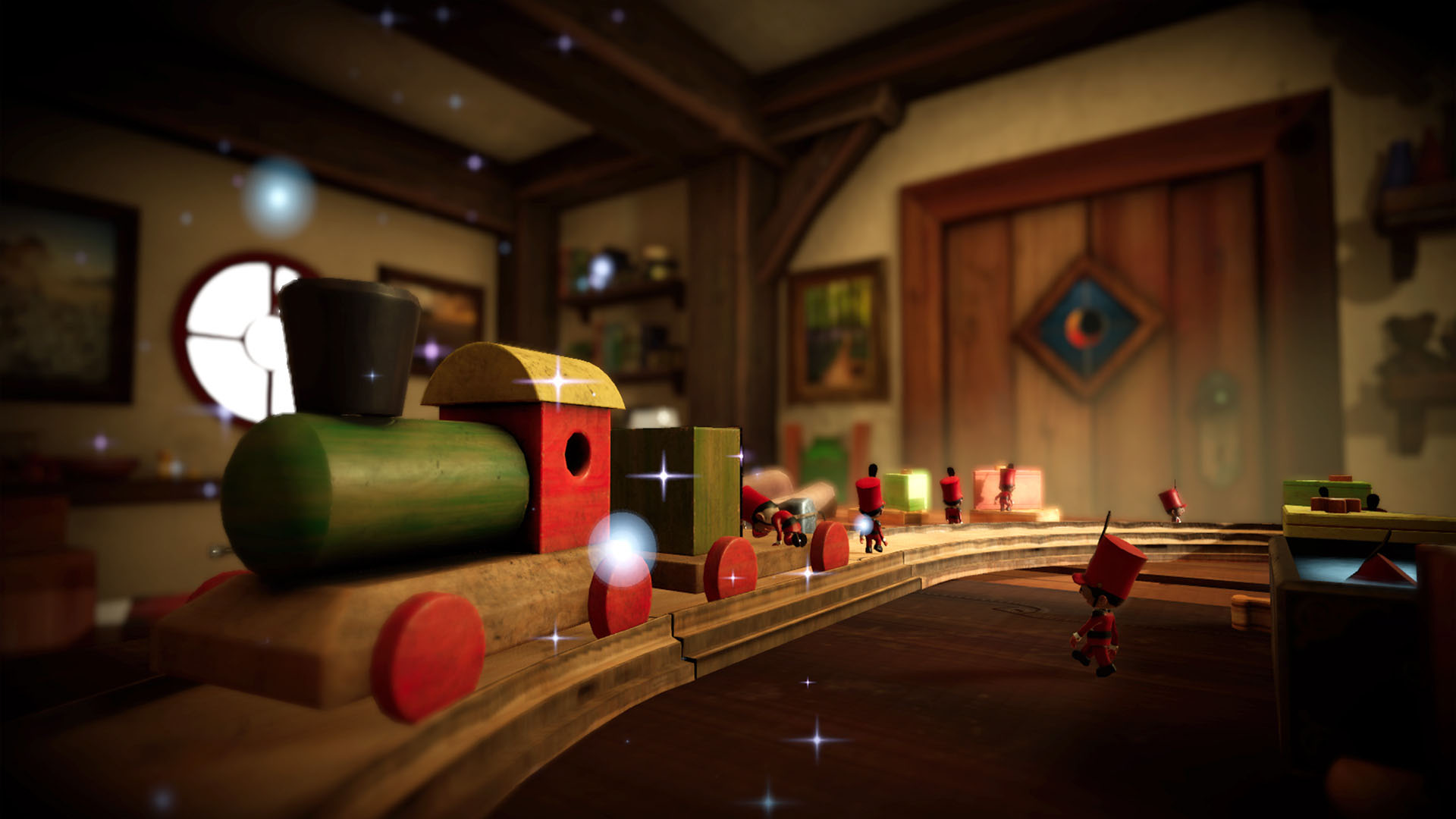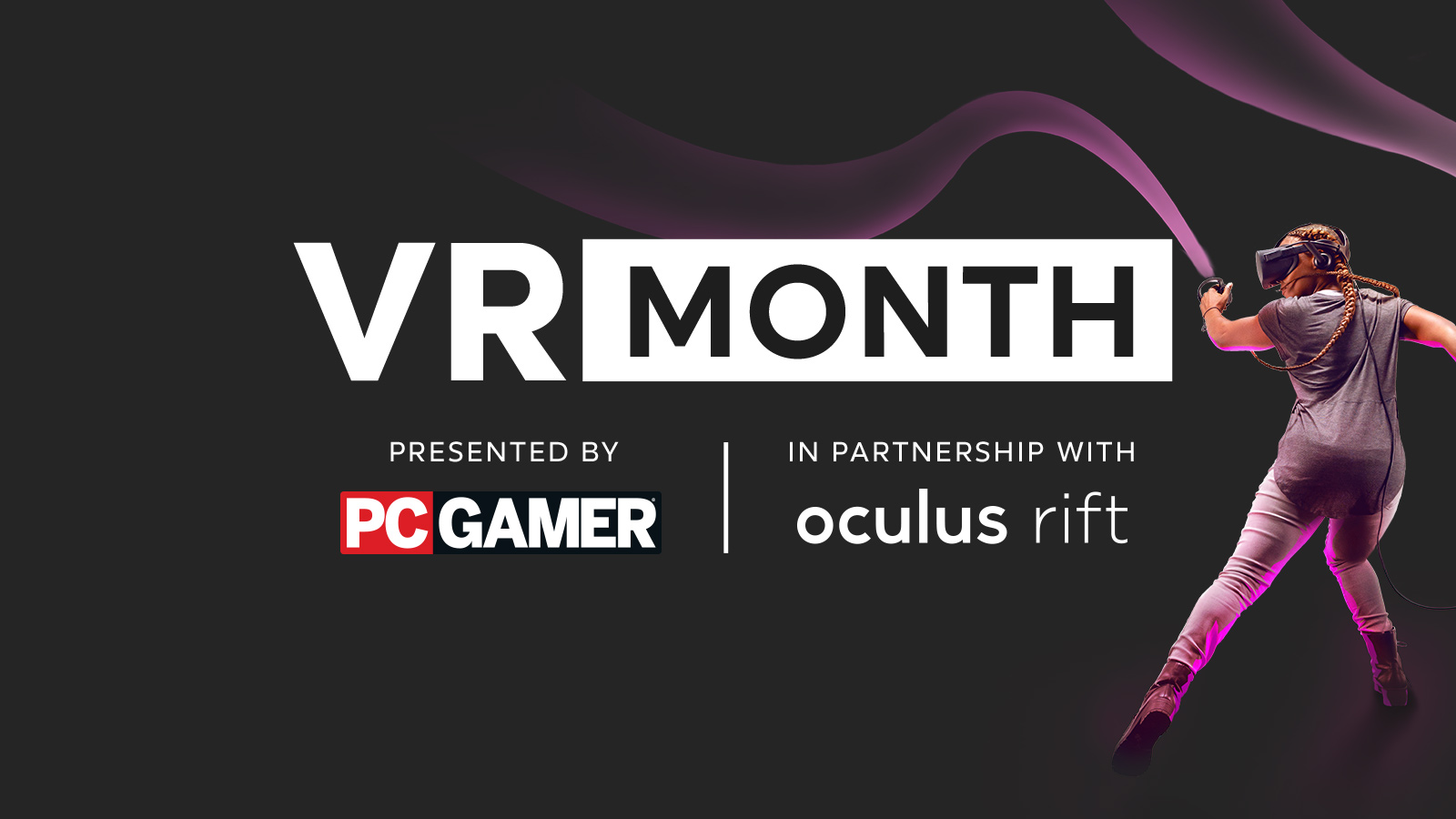Tin Hearts is an adorable Early Access VR puzzler with a lot of promise
Like Lemmings, but with cute toy soldiers.
Tin Hearts has the best save game screen I’ve ever seen. To mark your progress, you visit a giant toy-making machine that’s covered in levers and flanked by big, old-fashioned light bulbs. If you pull the middle lever you’ll see a plain metal soldier drop down into a small window at the top. It’ll clank through the machine’s innards, getting a paint job and polish—other windows provide a view in—until it emerges onto a conveyor belt at the bottom, saluting in a spot light. Voila: you’ve saved your game.
Tin Hearts is full of these charming moments. It’s a Lemmings-style puzzler about guiding an army of toy soldiers from a wooden box to a tiny door in a wall, usually on the other side of a workshop filled with workbenches. The soldiers will walk until they bump into an object, and then change direction based on the angle of the obstacle. To get them to the door you must redirect them with wooden blocks, bounce them off drum kits and fire ping-pong ball cannons to create new paths.
The small details make it a joy to play. I love the way the soldiers walk, their oversized heads bobbing up and down with every step, the feathers on the top of their hats flapping. During my two and a half hours with the Early Access build, which contains the first third of the game, I regularly crouched down to my soldiers’ level just so I could watch them march.

In some puzzles, a jack-in-the-box will grab any soldiers that pass in front of it, and when you send your soldiers round the back you’ll see the clown inside the box push the lid open with spindly fingers, peek out, and then scuttle from side to side trying to get a good view.
My favourite contraption was one that blows up a balloon when a toy soldier steps onto a platform. The soldier then grabs the balloon and can float across small gaps. Two mechanisms sit on either side of the platform, each with tiny arms: one plucks a pink balloon from a collection and hands it to the other machine, which sticks it on a nozzle and rams a pump up and down with its miniature hand, before handing it to the passing toy soldier. I could watch it all day.
Like any good puzzler, Tin Hearts gradually layers in new mechanics, introducing each one slowly and eventually combining them in the same level. You start simply: by placing blocks into designated slots on a table, building a safe path. Soon you’re freely placing blocks to guide your soldiers, rewinding and fast-forwarding time, and moving a wooden train around tracks so that your soldiers bounce off of it it at the right angle. Later, you’re positioning drums that soldiers can jump onto from the edge of a table and knocking over books with a cannon so that they bridge a gap.
Every time I felt like I had mastered one trick, it threw another at me. So far what's playable in Early Access is never really challenging, and I didn’t get stuck once—but that feels about right for the cutesy setting. The workshops are the kind you’d come across in a children’s book, with miniature hot air balloons hanging from the ceiling, toy aeroplanes sitting on shelves and heavy leather-bound books sitting abandoned on workbenches. The enjoyment comes from watching these spaces come to life, rather than from solving tricky puzzles.
Keep up to date with the most important stories and the best deals, as picked by the PC Gamer team.
Tin Hearts wants to tell a story, too, and occasionally a cutscene will play out where the white outline of a father (a toymaker) and his daughter will enter the room you’re in. This first section doesn’t give much away, but I’m looking forward to learning more about him and his family in the full game.
As much as I’ve enjoyed my time with Tin Hearts, I do wish I could interact with more objects in the environments. I constantly wanted to grab stuff from the table in front of me and throw it across the room, but if an object wasn’t directly related to the puzzle, my hand passed right through it. It’s a shame for a game built of toys that look like they want to be played with, but it wouldn’t take much to improve it. One or two more peripheral items that you can interact with in each level would do.
One other thing that pulls me out of the game: when you're facing away from your VR sensors, giant arrows appear telling you to turn around. The levels start small and grow, to the point where you’re teleporting around a room to grab objects and ferry them back to another spot. Every time I turned around to search for a block I missed, or to locate the final door, the arrows were shining back at me, and it was always jarring, even if the advice is important. I'd rather Tin Hearts only flash the arrows if your sensors lose track of one of your motion controllers. Otherwise, keep the levels clear of clutter.
The only other gripe I had was with the final puzzle of the Early Access build. Every other puzzle had clear, defined paths for your soldiers, and it was just a case of working out how to get them onto that path. But here, I had to steer them through a tiny gap between a book and a wall. It was just about big enough for them to squeeze through but if I was a fraction off, they got stuck in the gap, turning endlessly on the spot as they repeatedly hit book, then wall, then book, then wall.
It was annoying and fiddly, and I had to constantly pause and rewind to move a wooden block what seemed like a millimetre to the right or left to make sure they could all pass through.
If developer Rogue Sun can avoid those small pitfalls going forward, and make each level feel a little more interactive, Tin Hearts could be special. I love the detailed animations of both the toys and machines in the levels, and it constantly adds new ideas, so it never feels boring. The dev team promises that the rest of the game, which should be out within a year, will continue to add new ways to solve the puzzles. As long as that involves tiny, complex machines that I can just stand and watch while they work, I'm in for the journey.
Samuel Horti is a long-time freelance writer for PC Gamer based in the UK, who loves RPGs and making long lists of games he'll never have time to play.



